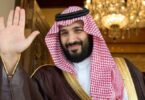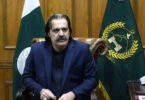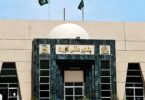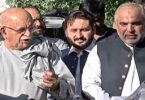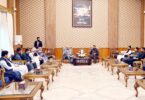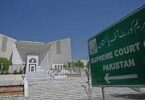F.P. Report
ISLAMABAD: Foreign Minister Shah Mahmood Qureshi on Friday said as Kashmiris wanted a full-fledged restoration of statehood of Jammu and Kashmir, the claim of Indian prime minister Narendra Modi to fulfill such demand “at some opportune time” was entirely “vague and against the interest of Kashmiris”.
He termed the meeting between Indian prime minister Narendra Modi with Kashmiri leader minus the All Parties Hurriyat Conference a “staged drama and a public relation exercise” to cover the illegal acts of August 5.
“This was a failed attempt on part of the Indian prime minister to mend the tarnished image of his government following the illegal acts of revocation of special status of Jammu and Kashmir,” the foreign minister said here at a press conference.
The foreign minister was referring to Thursday’s meeting where Narendra Modi met political figures from Occupied Jammu and Kashmir – the first high-level engagement since August 2019 when India revoked the region’s autonomy by scrapping Article 370 of its constitution and ended the special status of J&K. He said the all-parties conference called by the Indian prime minister exposed the tall claims about normalcy of the situation in Jammu and Kashmir ended up in failure.
He said there existed a wide gulf between the aspirations of Bhartiya Janta Party government and the true representative of Kashmiris who remained “in search of their identity and the basic right of self-determination.
Qureshi said the last two years in J&K were all about the “siege of Kashmiri people” with routine incidents of extrajudicial killings, illegal detentions and abductions. “India has exercised all tools of State oppression to curb the determination of Kashmiris, however it has failed to subjugate them,” he said. He mentioned that India’s illegal act resulted in economic loss with 50 percent of industries closed in the valley.
To a question on India bringing demographic change in J&K, he said since the step would have far-reaching implications, Pakistan had highlighted the matter at highest fora including United Nations General Assembly, UN Security Council, during bilateral interactions of at the levels of prime minister and foreign minister, through parliamentary engagement and Geneva Council of Human Rights.

